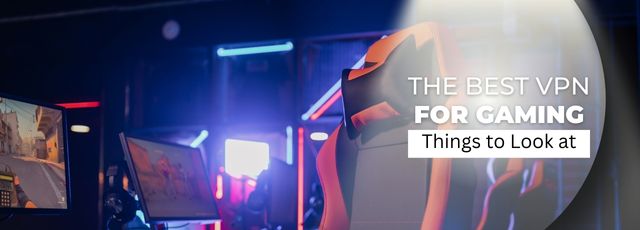Welcome, gamer! So you’ve heard about the benefits of the Virtual Private Networks. They shield you from some online threats and allow avoiding geo-blocking. But are they in any way useful for a serious gamer?
Is Gaming With VPN a Good Idea?
A VPN connection modifies your network architecture. It constructs a logical tunnel spanning from your device to the provider’s server. It becomes an intermediary to the rest of the Internet. VPN also adds a layer of encryption to data transfer, which makes it illegible for any third parties like your ISP or hackers.
As a side effect, your apparent IP gets changed to the server’s IP, so your approximate location appears different for online entities. That’s why using a VPN for gaming is sometimes necessary. Games are territorially copyright-protected, so they can get blocked by the producer or distributor in your region. Such practices had caused legal tensions, like the case of Valve vs. European Commission in 2021.
A VPN provides an easy way to avoid geo-blocking, but for gamers it has its consequences. First, all your packets get an extra stop on the way. Second, the encryption-decryption processes take time. The result is a player’s nightmare: growing ping.
But your ping time depends on many factors. The biggest one is often the unpredictable route of the data packets. The smaller the number of hops between you and the game server, the better the ping. You cannot navigate your data flow through the Web. But if you find a VPN server close to the game server, there’s a good chance that your ping might improve, even despite the encryption time. Also, the tunneling protocols tend to navigate the packets more directly, at least on the way to the VPN server.
Gaming With VPN: Safety First
VPN increases privacy and security of any online activity. This is especially useful when using an unsafe public network, like Wi-Fi at a restaurant or a hotel. But gamers sometimes face a worse threat. Some players, frustrated by a defeat or just being mean, can attempt a nasty way of gaining advantage: a DDoS attack. Online games often expose players’ IPs, which are targets for DDoS. It is a sort of assault on your online connection with a goal to overload your device with useless traffic. As a result, your connection is horribly lagging, or you get totally disconnected.
A VPN can prevent it by redirecting an attacker to a fake target: one of your provider’s servers. Those are no ordinary PCs, but powerful machines run by professionals. They typically have anti-DDoS protection far too strong to be breached by malicious gamers. Attackers get quickly recognized and banned.
What’s the Best VPN for Gaming, Then?
The one that is serious about its security and having a worldwide network of servers. An example would be tuxlerVPN. Besides the military-grade encryption, it also offers residential IPs, which can further increase online anonymity. The wide choice of server locations may even help to reduce your ping!
